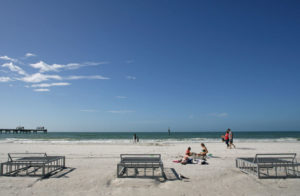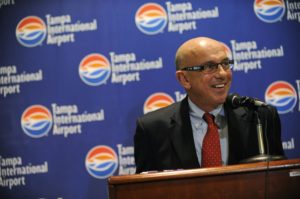By Justine Griffin for the Tampa Bay Times. Aug. 5, 2016.

Longtime residents of Madeira Beach remember when they affectionately referred to their sleepy gulfside community as a “fishing town with a drinking problem.”
But then came the condominium towers. And now some say two proposed projects valued at a combined $200 million threaten to change the landscape of Madeira’s quaint, beachy atmosphere.
“That old quaintness has somewhat gone away already and probably will never come back” said Joe Jorgensen, who has lived on Madeira Beach since 1984. He and other residents started a petition to fight against the development, which generated more than 1,000 signatures in two weeks. “I’m not against all development. I just want to see something that is conducive to our lifestyle. We don’t want to turn into Clearwater Beach.”
Tourism has boomed in Pinellas County since 2011, shattering records set before the recession and driving up hotel room rates from St. Pete Beach to Clearwater Beach. Mom and pop motels that have operated along Pinellas County’s “middle beaches” in Treasure Island and Madeira Beach since the 1950s could face new competition as local municipalities tweak ordinances to attract new development.
Read more in the Tampa Bay Times here.

